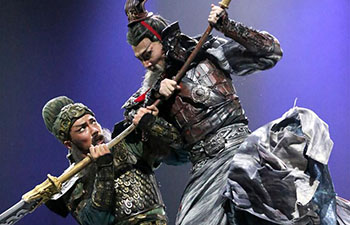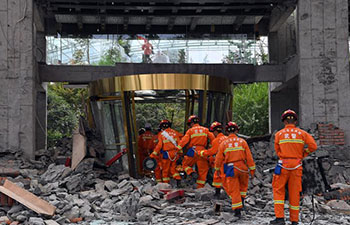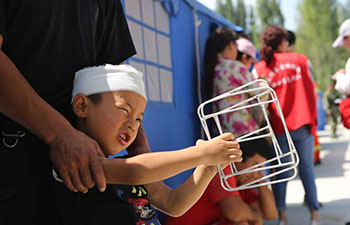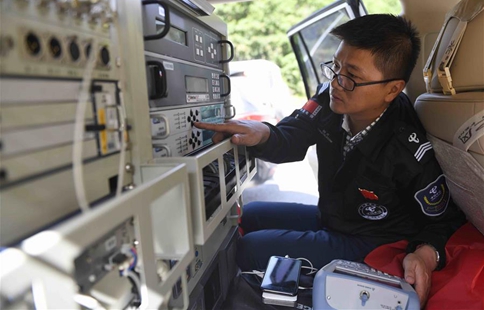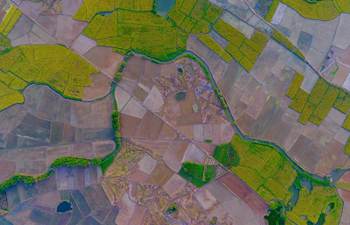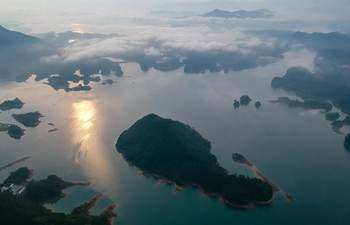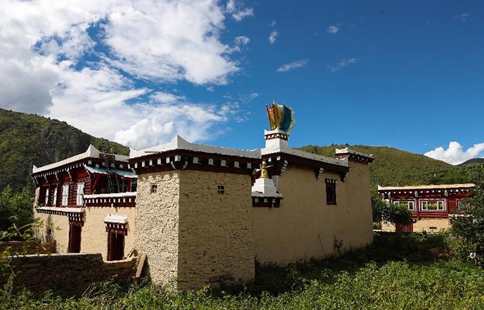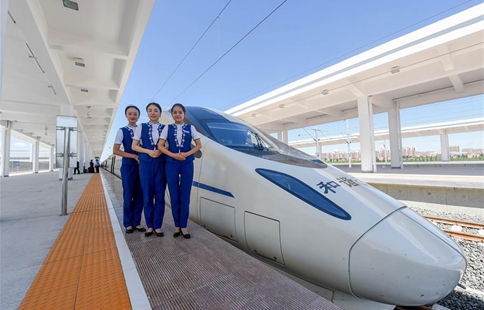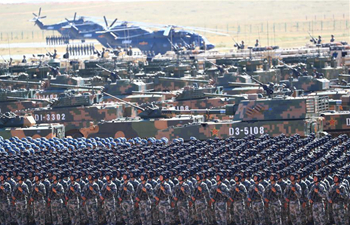
Japanese Prime Minister Shinzo Abe bows during a ceremony commemorating the 72nd anniversary of U.S. atomic bombing at the Peace Park in Nagasaki, Japan, Aug. 9, 2017. To accelerate Japan's surrender in World War II, the U.S. forces dropped an atomic bomb on Hiroshima and Nagasaki respectively on Aug. 6 and 9, 1945. (Xinhua/Ma Ping)
NAGASAKI, Japan, Aug. 9 (Xinhua) -- Japan's Nagasaki commemorated the 72nd anniversary of the U.S. atomic bombing on Wednesday, with its mayor calling for sticking to pacifist Constitution and reconsidering the policy of relying on the U.S. nuclear umbrella.
During the ceremony at the Peace Memorial Park, Mayor of Nagasaki Tomihisa Taue criticized the central government for not joining negotiations for the Nuclear Prohibition Treaty, saying that it was "incomprehensible" to people living in the cities that have suffered atomic bombings.
He also urged the central government to reconsider the policy of relying on the U.S. nuclear umbrella and "reaffirm to the world its commitment to the pacifist ethos of the Constitution of Japan, which firmly renounces war."
Taue's remarks came at a time when Japanese Prime Minister Shinzo Abe and the ruling Liberal Democratic Party (LDP) have been eyeing making Japan's first-ever postwar amendment to the pacifist charter.
Yoshitoshi Fukahori, representative of the victims and their families of the atomic bombing in Nagasaki, said the pacifist Constitution has been "a basic state policy" for Japan since the end of World War II, and "without the policy, Japan would lose trust of the world."
Prime Minister Abe delivered a speech at the ceremony, in which he still made no mention of the historical background for the atomic bombings or Japan's aggressive war against its neighbors.
While Abe was speaking, shouts of protests burst out from around the park, demanding the prime minister to step down.
Despite the rainy weather in Nagasaki, a number of civil groups gathered around the park, holding banners and shouting slogans demanding for peace and no war again.
"To prevent recurrence of such war tragedies, people shall learn from the history and pass on the truth to the future generations," said Kato, one of the protesters.
To accelerate Japan's surrender in WWII, the U.S. forces dropped two atomic bombs on Hiroshima and Nagasaki respectively on Aug. 6 and Aug. 9, 1945. Japan surrendered to the Allied Forces on Aug. 15, 1945, bringing an end to the war.




